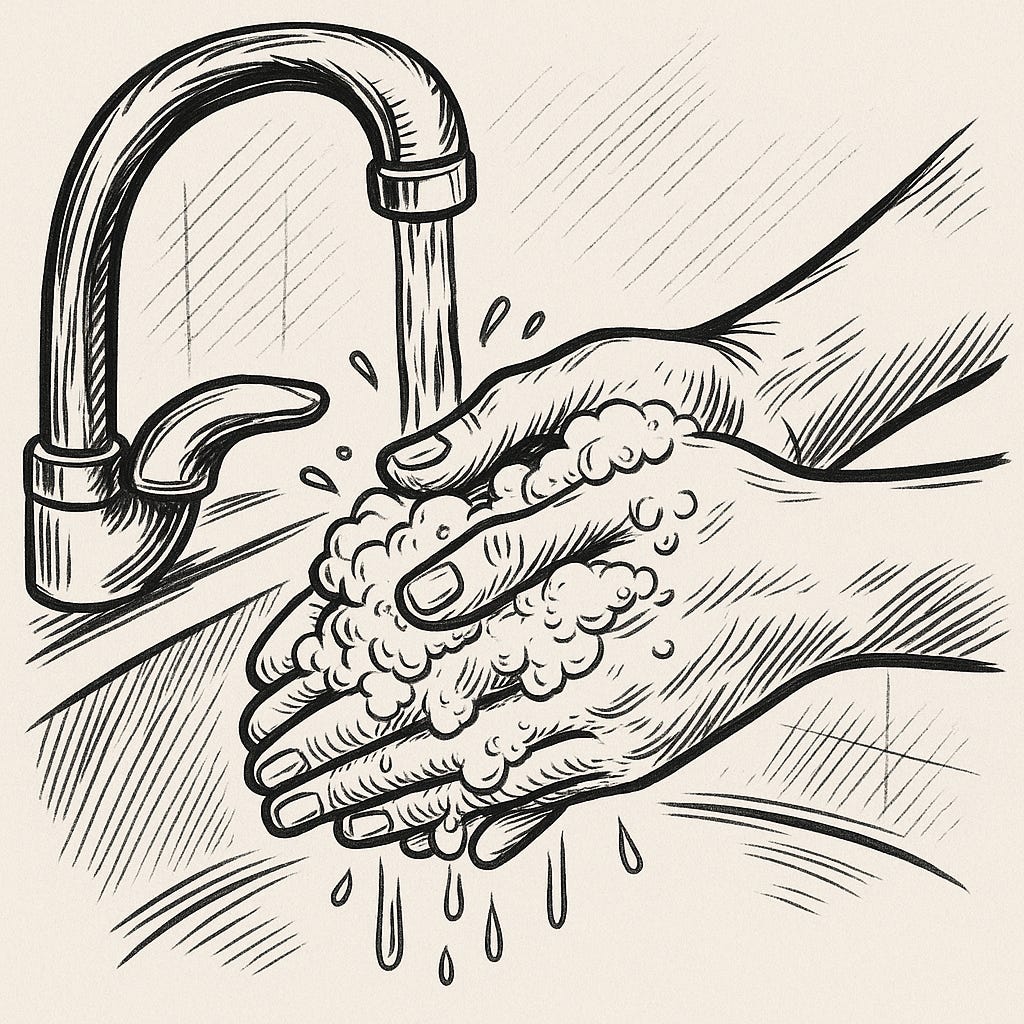New Paper: When the Executive Has Unclean Hands
Equity and public law, from me and Sam
Sam Bray and I have a new paper on SSRN, When the Executive Has Unclean Hands, forthcoming in the Yale Law Journal Forum.
Here is the abstract:
Those who come into equity must come with clean hands. But what happens when it is the executive who seeks equitable relief? This Essay argues that the unclean-hands doctrine applies to the executive, though in a modified form that reflects the relationships between officials in the executive branch, between the executive and legislative branch, and between the government and the people. It then applies the doctrine to current controversies such as government requests for stays from the Supreme Court, and a pending lawsuit against the District of Maryland.
And from the introduction:
One of the great dilemmas of public law adjudication is whether (and when) courts should take a “formalist” approach to other governmental institutions and when they should take a “realist” one. That is, do courts follow “legal doctrine,” which considers “the institution . . . at a high level of abstraction and generality,” or do courts instead pay attention to “con tingent, specific features of institutional behavior, or to the particular persons who happen to occupy the relevant offices”? Adjudication involving the executive branch pointedly presents this dilemma, especially today.
In some areas, however, the dilemma disappears, because the law itself calls for a kind of institutional realism. This Essay considers one example, a familiar maxim of equity: “Those who would come into equity, must come with clean hands.” This clean-hands doc trine, also called the unclean-hands defense, gives courts a reason to deny equitable relief to litigants who have acted inequitably in “immediate and necessary relation to the equity” they now seek.
In analyzing this doctrine, we recognize and set aside some broader questions such as: How should the legal system as a whole respond to official misconduct? What kind of remedies should or must the legal system provide for official misconduct? Should those remedies be rooted in the Constitution (as happened, for instance, during the criminal procedure revolution of the Warren Court)? And most broadly of all, how do moral constraints apply to political leaders?
Instead, we address a question that is more specific and more legally grounded: How should the unclean-hands doctrine be applied when the executive branch seeks “equity” in the form of a remedy such as an injunction, or in the form of a stay of a lower court’s order? Our bottom line is that unclean hands does apply against the executive branch. Nevertheless, it applies in a more limited way than it would to a typical private litigant, given the agency problems that inhere in executive enforcement of federal law.
Our conclusion allows courts to distinguish between stronger and weaker cases for application of the clean-hands doctrine. Three questions illustrate this spectrum. Should all egregious behavior of the current administration be kept in view when a court is deciding whether to grant the executive equitable relief? (No.) Should unclean hands have precluded relief for the government in Department of Homeland Security v. D.V.D., where the Solicitor General sought a stay of a district court order restricting deportations even though govern ment officials had allegedly violated that very order? (Maybe.) Should unclean hands pre clude relief for the government in United States v. Russell, the suit against all the federal district judges in the U.S. District Court for the District of Maryland? (Yes.)
You can read the whole thing here. Comments welcome!


